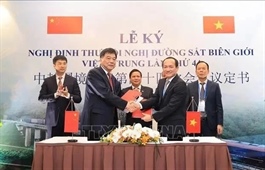More startups wanted to aid innovation
More startups wanted to aid innovation
Changing policies related to innovation startup funds is expected to diversify the capital market for the startup business community.
In November, the Ministry of Planning and Investment (MPI) sent the Ministry of Justice for appraisal the dossier of a decree amending and supplementing some articles of Decree No.38/2018/ND-CP detailing investment for small- and medium-sized startups.

Investment funds have not yet provided enough support to startups in Vietnam, Photo: Shutterstock |
The draft decree proposes to increase the total number of investors contributing capital, considering a maximum of 99 to approach the maximum number of investors in member investment funds under the Law on Securities.
The MPI proposed to add three areas of funds: investment in deposit certificates at credit institutions, in convertible investment instruments, and the right to purchase shares in innovative startups.
Although Decree 38 has been in effect for six years, there are 33 funds only with a total contributed capital of VND413 billion ($16.8 million), accounting for less than 5 per cent of the venture capital market share in Vietnam.
Funds established under Decree 38 are mostly small in terms of registered capital. Specifically, 15 funds have a capital size under $40,000, 11 funds are in the $41,000-410,000 bracket, five are in the $410,000 to $2 million bracket, and only two funds have a higher capital size. They mainly focus on low-risk investment fields that bring stable profits such as IT, education, healthcare, and e-commerce.
Contributed comments sent to the MPI said that some provisions are inadequate, failing to fully promote the potential and expectations of the investment fund community and creative startups. Notably, the creative startup investment fund has no legal status, established by a maximum of 30 investors contributing capital for the fund’s charter. This fund cannot contribute capital to other startup investment funds.
Investment funds claimed to the MPI that the regulation limiting the maximum number of investors contributing capital reduces the attractiveness of the fund, causing many difficulties in capital mobilisation, as well as reducing the liquidity of investments in the fund.
Decree 38 only allows funds to invest in the charter capital of startup smaller businesses or deposit money to earn savings interest. This does not allow investors to hold the right to buy shares in enterprises, which limits funds from accessing the growth potential of a new enterprise without pouring a large amount of capital at the beginning. Moreover, international practice also allows funds to invest in deposit certificates to optimise financial resources.
Funds investing in startups is deemed quite promising. However, Tai Tran, founder of Candela Wealth Management, said that funds have not yet provided much support to startups, for many reasons.
“In foreign countries, startup promotion policies that can generate 10-20-times higher value to the economy, are ready to disburse if proving the feasibility. In Vietnam, due to limited financial resources and high risks, funding for startups is not as effective as expected,” Tai said. “If implemented properly, venture funds will not only promote the development of startups thanks to the support of capital and finance but also contribute to attracting and retaining talent.”
Hoang Duc Trung, partner at VinaCapital Ventures, added, “Capital sources do not come from funds or financial support for startups. In recent years, capital and financial support from new sources have appeared, such as large domestic and foreign corporations, agencies, universities, incubators, and international organisations,” Trung said.
To promote the capital market for startups, the participation of various parties is needed, Trung said. Specifically, it is necessary to invest in and develop a solid startup ecosystem, so startups can access capital from variety sources and receive financial support. Promoting the potential of the Vietnamese market is needed to attract foreign investment, in addition to support from the government on preferential investment policies in the startup sector like tax reduction and simplification of administrative procedures.
“We should create more or simplify capital withdrawal channels for the startup, such as a stock exchange dedicated to startup tech companies, and simplifying procedures for raising capital from foreign investors,” Trung suggested.
At the end of October, Vingroup announced the launch of VinVentures Technology Investment Fund with total assets of $150 million, investing in innovative technology startups, especially AI, semiconductors, cloud computing, and high-tech products.
“With the network and resources of a leading corporation in Vietnam and the region, we are ready to advise and support startups to connect with major partners in the market and be a launch pad for potential startups in the future,” fund CEO Le Han Tue Lam stated.























